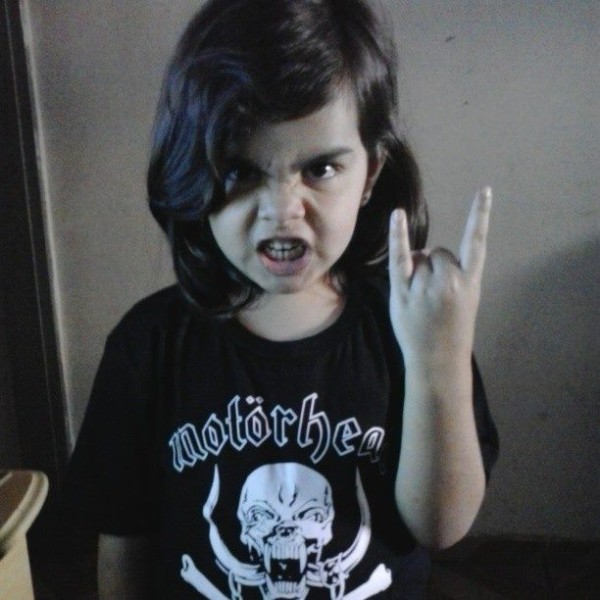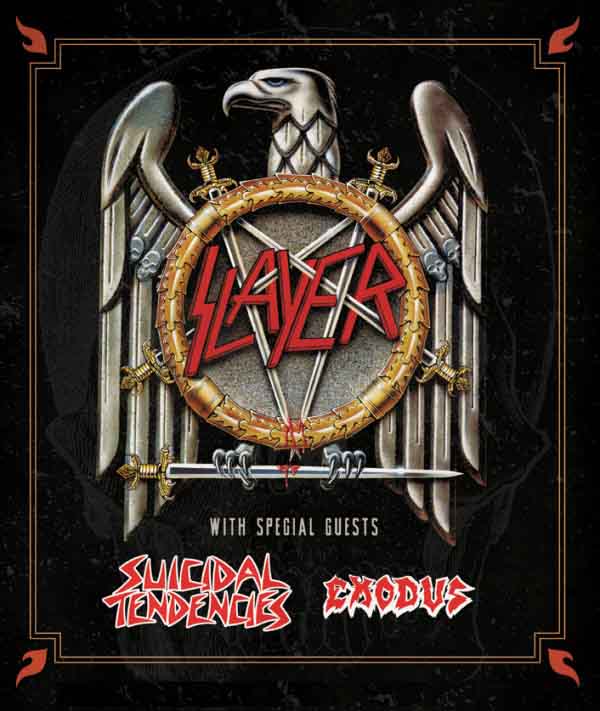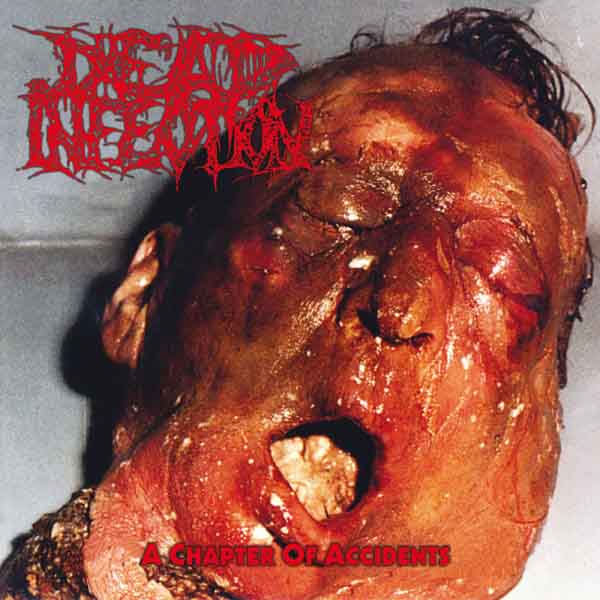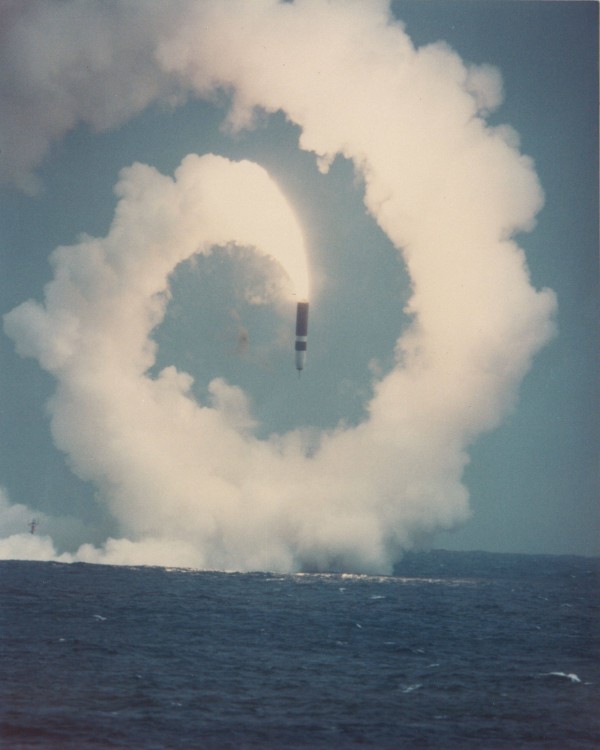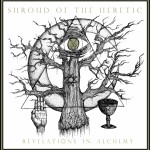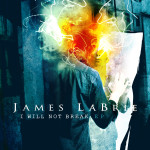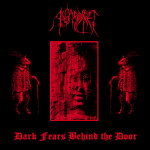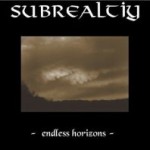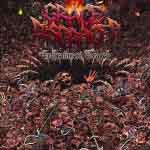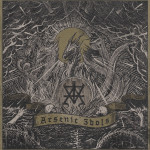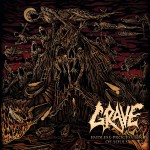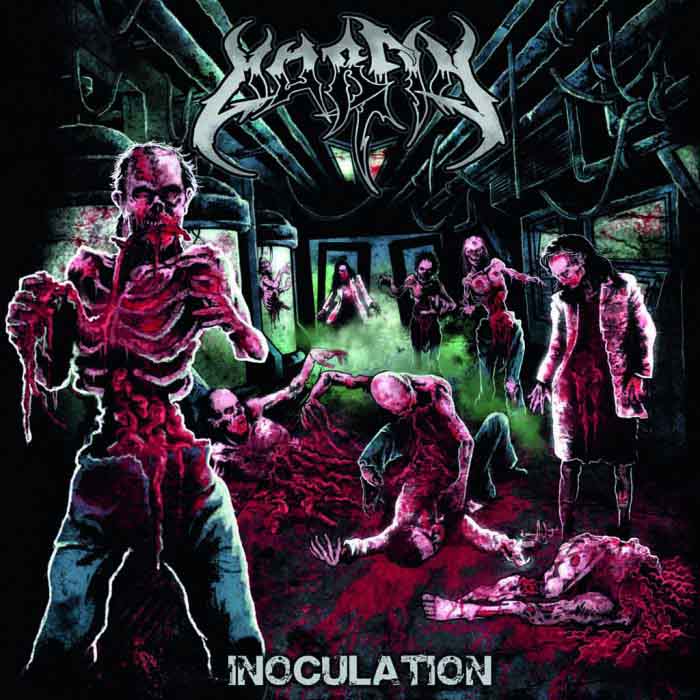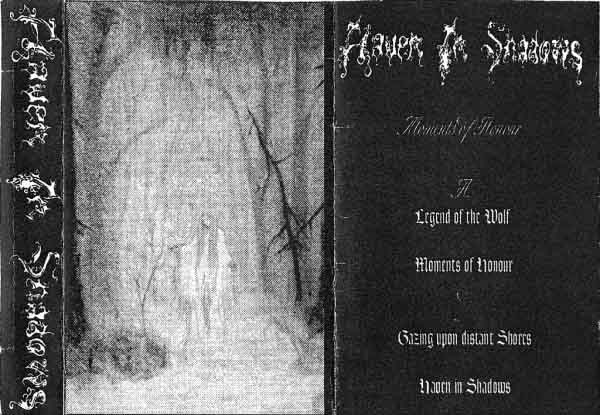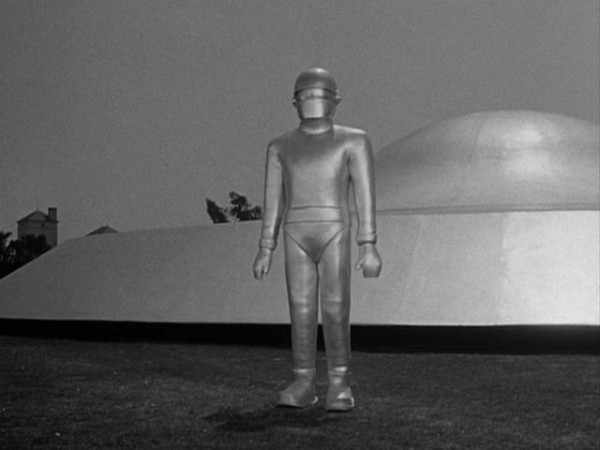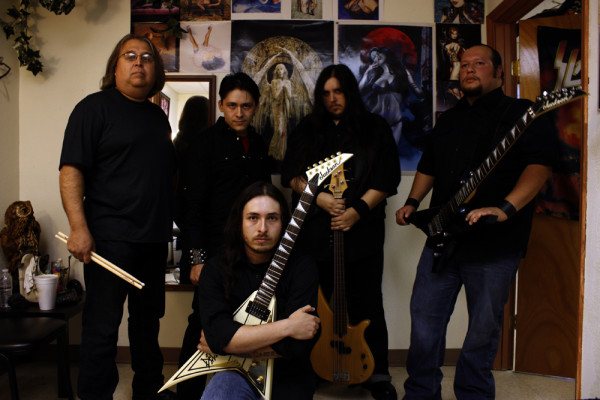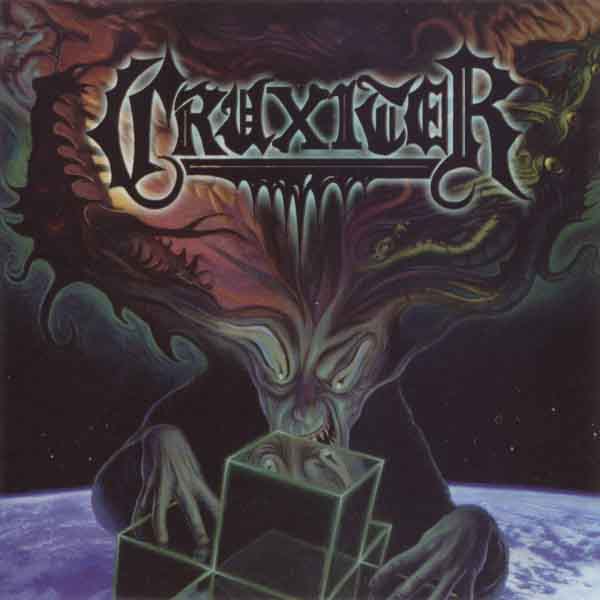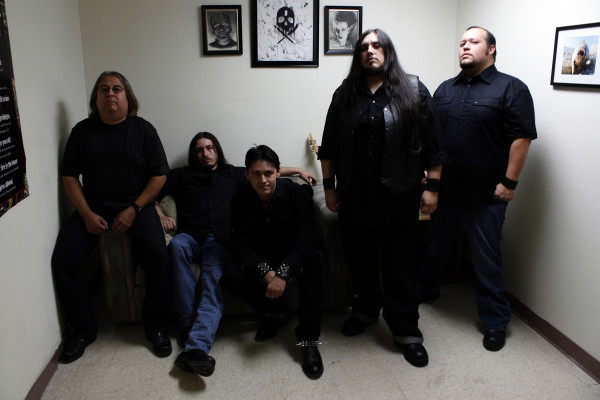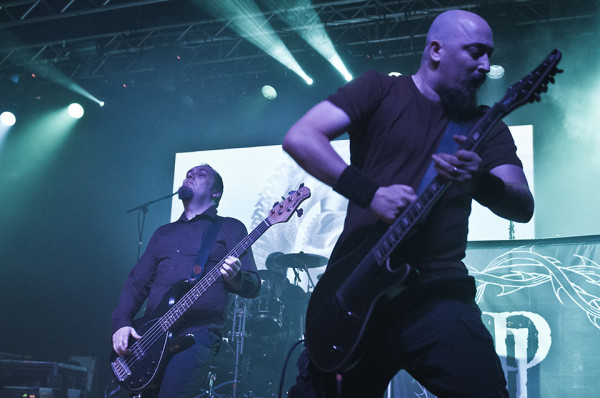
Photo: Paradise Lost from a MetalRecusants.com article, by Vivien Varga.
Online resources for metal pose a problem. On one hand, smaller entities tend to dry up and blow away as their members move on in life and get tired of paying hosting. On the other, large centralized resources are quickly gamed by industry and dominating by small in-groups. Thus the post-modern metalhead always has an eye out for new resources.
A recent entrant in this field is Metal Recusants, a semi-unorthodox site known for its wise-ass reviews and scathing commentary on the metal scene. We were fortunate to be able to get in some words with Dom, head reviewer and site founder, on his activity and the appeal of Metal Recusants in a time of increasing metal information overload.
What’s a “recusant,” why did you pick the term, and how does it describe what you do?
“Recusant,” similarly to “non-conformist,” is a term taken from English history. Recusants were Catholics in England who did not convert to the new Anglican religion. I thought of this term because I was looking for something similar to non-conformism. As you wrote on your site, metalheads do not conform easily and that is the message I want to pass on with this name. I think it fits in perfectly with our mission to promote less-known “underground” music but also in describing the “underground” way we write in and organise ourselves.
Our aim is to not only feature the most obscure metal band that no one knows about but also to provide a balance of the less-known acts with the better-known ones. Additionally, there are many opinions, different tastes and different writing styles that people have. I aim to highlight this with our site by not having strict writing guidelines. Apart from the way our articles are formatted I do not ask our writers to write in a certain style. I do not want MetalRecusants to become the next fruitless mainstream metal magazine in which you cannot easily tell the difference between reviews apart from the album name and the rating.
In many cases they are all written in the same way, most commonly in the third person the writer distances himself/herself from the music and gives an authoritative opinion of the music… Therefore, I do not ask our writers to write in the first or third person, I do not tell them to write in British or American English, I do not ask them to write “death metal” in capitals or small letters. Moreover, I do not ignore genres or sub-genres which I may not like. For instance, I hate metalcore but you can see that we have featured that sub-genre quite a few times. There is no one single music taste which is superior or better, we all have different styles whether it is the way we write or the music we choose to listen to. No one on this planet is a “metal guru” who tells you what you should listen to. We write our opinions in our own way and we let you decide whether you want to check that band out or ignore it.
“Recusant” is also an obscure term, a word not used in everyday language, and, hence, whether someone remembers the word correctly or not, he or she will remember that that is the site with the weird name – which is actually the majority of people, haha!
Apparently MetalRecusants.com started after you’d been writing other reviews. Where did you write, and what was the reaction?
I did not have any experience writing for other websites or magazines prior to starting this site. I have only been writing personal reviews on my last.fm journal after attending gigs and discovering new music. Therefore, the audience was usually my family and friends as well as the odd last.fm user who would stumble upon my writing. The reaction from my family and friends was great, everyone supported me, especially my parents and siblings. I always have the urge to share the stuff I discover if not by writing articles then by sending out emails or messages. On some occasions some friends and family learnt about new bands through me while on other I was just being a nuisance by filling their inboxes with messages.
Do you consider yourselves “elitists”? What is an elitist? How is that different from a snob, poseur, scenester and hipster?
Not at all. As I mentioned before, even though I am the one taking most of the big decisions for MetalRecusants, I still feature music which I may not like but my writers like and want to write about. Since my aim is to feature all kinds of metal (and non-metal with our “31 Flavors” series) music and I do not decide what music is featured by just looking at how the band dresses or if they are labelled as metalcore or black metal, I can safely say that I do not consider MetalRecusants as elitist.
What is an elitist? In metal, the most common term I came across of an elitist person is someone who listens to only the most obscure underground metal – usually death and black – and hates anything else unless it is an old band which had an impact on the metal scene.
I think elitists have many parallels with snobs, poseurs, scenesters and hipsters. They certainly tend to follow a certain limited type of music while ignoring other types. However, poseurs, snobs, scenesters and hipsters may be doing it more in order to show off and fit into a scene. This happens a lot in metal as well but I think the “elitism”, “hipsterism” and “scenesterism” in metal is much more than just showing off. It is a community in which you share the music you listen to with like-minded people.
That is why going to small club metal shows is my favourite activity because the atmosphere is very intimate and makes you feel like at home. Wherever you may find a metalhead, you straight away have something to talk about – you may not have the same tastes and opinions but who does? Metalheads may seem to be elitist but I think it happens in many cases because they have found what they like, they learnt which labels, magazines and venues they can rely on. They feel comfortable with that and I think that is perfectly healthy as long as you keep your mind open of course and do not start following blindly these institutions – something which unfortunately is happening in metal. Sometimes I think commercialism is taking over and some people are becoming victims of it by following things blindly. Sorry, I am straying away from the main topic so I will just stop here!
Do you treat other genres with the same outlook? Is heavy metal different from other genres, with — dare I say it — heavy metal “exceptionalism” such that it merits different treatment?
I always used to (and still do) compare heavy metal to classical music. I do that because when I was crazily into Iron Maiden at the age of 12-13, I would compare their three guitars and all the layers of their music to an orchestra. Being brought up with a variety of music, going to music school in the afternoons almost every day, caused me to draw parallels with classical music. The more I listened to stuff like Beethoven, Mozart or Chopin (which is playing almost constantly in my parents’ living room), the more I could compare it to metal music. Since this was happening in my early teens, it made me into a kvlt (or elitist) metalhead with easy justifications that metal is the only “just” genre in popular music because it has such serious and historical roots!
You could say I matured a bit now as in the same day you can see me listening to stuff such as Vader, ABBA, Beethoven, The Doors, Pearl Jam or Immortal. Anything goes really. It’s all music in the end. To answer your question, I do not think metal should be treated differently than other genres but I do think it is as much of a serious genre as classical music and it has a rich and fruitful history. Heavy metal is already not treated the same way as all the other genres, therefore, I believe, the greater society should start treating heavy metal seriously and not as just some teenager’s rebellious phase.
Is metal an art form, entertainment, both or does it straddle the line? Is there a difference between Beethoven’s Fifth or “Journey to the End of the Night” and Miley Cyrus (“Bangerz”) or “Game of Thrones”?
In most cases, I see metal more as an art form rather than entertainment. The fact that the majority of metal musicians create the music first for themselves, they make music based on how they are inspired, makes it art. They do not care how it is received by the greater public. If you start caring how your music is received by the average person, then that means you are not creating art anymore, you are trying to sell a product to a certain audience.
Metal is not all about entertaining people, however, metal creates great music to rock out to on a night out, right?! I know this has been talked about in all documentaries and interviews and it sounds like a cliché but the following is true: metal music is always there with you and for you. It can make you smile, laugh, cry, feel depressed or be there just as a great soundtrack to getting drunk (or whatever else you might want to poison yourself with). You can only understand this if you truly get into heavy metal by listening to the albums, reading about the bands’ history and going to the shows.
What do you look for in a band that makes you think favorably of them and possibly write a favorable review? Do you treat demo and first album bands differently from established acts on major labels?
There are various things to look out for but I am always up for surprises. Actually, if I listen to a band expecting something totally different and I end up loving it then we have a winner. Nonetheless, for a band to receive a favourable review from me, the music has to reach out to me emotionally and bring me into a certain state of mind. There is no mathematical equation for this really. Some piece of music can reach out more to you than me or the other way around. And here I am talking about myself – I can’t speak for the other writers on our team. They may disagree with me.
Everyone is treated the same by us. Of course, I love to listen to demos and new bands – recently I discovered Dismemberment and we streamed Thunderwar’s debut EP The Birth of Thunder. Because we receive LOADS of requests every week, we end up picking randomly the music we feature. There is only so much we can do since this is not a full-time job for us. Therefore, I would like to aim this to any bands or record labels which got in touch with us and never heard back or did not see their music on our site: please keep getting in touch with us, maybe in a few months we will feature you.
About how many people come through MetalRecusants every day (or month)? Has this gone up over the past year?
The numbers keep increasing every couple months or so. At the moment we have on average 4,000 unique visitors per month. If I remember correctly, half way through or towards the end of 2012, we had some 1,000 visitors, so yeah, the numbers are going up all the time. It is overwhelming when I think that I had literally zero people coming in when I started this as a blog in 2011. The more writers we got, the more bands we featured then the numbers kept going up.
Can you give us your (Dom) background in writing, music and theory? Does your day job/school overlap with your metal identity and life? Do the people in your daytime world understand your nighttime world (metal) or are the two incompatible?
I was brought up with all kinds of music in my family and I went to music school until the age of 19 where I did music theory, history and learnt to play piano and guitar (both classical and electric). My background in writing? I am a History student at the University of Essex in the UK – and currently as an exchange at Purdue University in Indiana, USA – so I guess I get to do a lot of writing like most students do! I think having this website and being a humanities student benefits me both ways because I am now used to writing all the time but it is also improving my writing style.
So far, I did not have to “sacrifice” my metal way of life for my university studies and social life. On the contrary, I will be writing a dissertation about heavy metal behind the Iron Curtain and I have met some wonderful metal (and non-metal as well) people while at university. At Essex there is a Metal Society of which I was an “executive” last year. We did – and they still keep doing – loads of awesome stuff; from organising simple socials at the bar to hosting our own metal nights on campus. I had an amazing time with those people and I am looking forward to going back in June and seeing all of them again as well as meeting any new faces!
MetalRecusants does not rate (assign a numerical value to) a band. Can you go into depth about why you don’t like this method?
That is correct! So people actually notice this? Haha! I always found album ratings ridiculous and especially the ones with decimal points. I mean, seriously, 98.6% or 5.5/10?! Focus on more how the music on the disc in front of you communicates with you, what do you feel when you listen to it? Does it make you smile, laugh or cry? Be creative, let us know how you feel instead of coming up with a weird ranking table. I actually talked about this with the great guys from Cattle Decapitation, we had some laughs about some of the Metal-Archives reviewers.
Music, in most cases, for me is an art form. I do not understand how I can give a numerical value to an album. An album/band rating is misleading, in my opinion, because if someone sees a 3/10 rating, he or she will most probably disregard that album. That person would not have noticed that there might have been something in that album that he/she might have enjoyed. However, if there is no rating, that person can read a balanced and detailed review of the music and come across elements of the music that he/she might have not learnt by looking at the rating. I just find album ratings to be limiting one’s imagination.
Do you think there’s a hazard to over-simplifying ideas expressed in written form? What makes an effective review/article for you?
It can be a hazard but all you have to do is choose the right words. To be honest, sometimes I can’t be bothered to read through a 1,000 word article. Therefore, it is nice to see articles with embedded music players or videos. We have a rule of at least 300 words per article (excluding news posts) on MR which equates to a longer paragraph, which is not that much. As long as the review/article goes into depth about the aforementioned qualities of the music (that we are told whether the writer felt anything while listening to the music) and also given a brief background about the band’s history then it doesn’t matter whether it is a 300 or 2,000 word article.
Can you give us a bit of background on MetalRecusants, i.e. what year it began, how it has grown, and where it’s going in the future?
I started MetalRecusants in March 2011 during my last year of high school on the small Mediterranean island of Cyprus. I somehow started getting more and more familiar and associated with the Cypriot metal scene. A German black metal band, Ctulu, got in touch with me about playing on the island and doing an interview so I gave them the contact details of all the promoters I knew and also contacted them myself to get them to the island – guess what? They played on the island twice so far and I’m now good friends with them, we keep meeting at Wacken Open Air almost every year. Regarding the interview, I decided – after being convinced by members of Cypriot death metal act Vomitile – to start a blog with my friend from school, Christian, since there were no proper active zines in Cyprus; there was only a forum (Cy-Metal) and zines from Greece, nothing truly Cypriot though. As you can see though, I did not make this site into a site about the Cypriot metal scene; I wanted something more than that, haha! There are many great bands in Cyprus though.
As I wrote before, the site has grown because we kept on writing and writing and getting more contributors. It works on a word of mouth basis really. We write a review, a band shares it on their pages, people like it or dislike it and we get recognised. It is important that bands and record label share these reviews – especially at the early stages.
What does the future hold for us? Well, I want to keep on carrying the flame and continue what we are doing as long as possible. I would like one day to start paying all my writers for their hard work but that’s the future. One thing which will definitely not change is that we will keep on writing honest articles and we will never rate releases!!!
Do you think the metal industry has changed over the past few years? Have any genres waned? What seems to be “happening” now?
I actually ask a similar question in some of my band interviews. I like older bands to compare the times when they were starting out to now. I think I came to an agreement with Jonas Renkse of Katatonia/Bloodbath that the metal scene has become more “professional” over the years, it turned into this proper metal music industry which lost that “underground” spirit which was more evident in the 70s, 80s and 90s. I was not really present in the scene (or alive) back then so I can’t really tell. However, I can agree that the metal industry is “professional” at the moment.
There are more people taking care of the bands’ tours, the record labels, the public relations with the press and promoters. Nowadays if you don’t have a PR, you’re less likely to be recognised outside of your own local scene. There are so many bands nowadays that it is very hard for a band to break through on its own. I don’t think any genres have waned over the past few years. On the contrary, every genre seems to have many bands – whether it is new bands forming or older ones creating new material. How many “comeback” albums did we have in 2013?! I am not the one to follow what is “happening” now and I hate editors or journalists who think they are someone and tell the world what is “in” or “out”. Of course, it is great to tell the world what you think is “in” or “the next big thing” but stating such opinions in an authoritative way is rubbish. Nonetheless, there seems to be some kind of stoner/doom/old-school 70s type of revival with loads of such rock ‘n’ roll bands forming which I don’t mind at all!
Do you use subgenre terms, like “death metal” or “discogrind”? How would these be useful to a metal fan?
I usually use the basic subgenre terms like “death metal”, “thrash metal”, “black metal”, “glam metal” and “doom metal”. I have come across a lot of weird terms like the one you mention “discogrind” or “trance death metal”. These terms might be good sometimes to label some piece of music very briefly and might come handy for a review. I am, however, not a big fan of labelling. I prefer to use the basic terms and if I see that there are other styles in the band’s music then I will point out that it is a mix of thrash and death or doom and black.
Finally, the hardest question of all: what is heavy metal? What makes a band heavy metal? How do we tell the difference between a band that is hard rock, industrial, etc. and heavy metal, death metal, grindcore, etc?
That is a good question and a hard one indeed! I guess it is rather hard to define heavy metal nowadays because of how much the genre has evolved. Everyone likes mixing their metal with everything now; there’s jazz metal, discogrind, trance metal, psychedelic/progressive, operatic, orchestral, there’s literally everything you can imagine. For me, heavy metal is something that really rocks, really moves you and fills you with emotions. I will borrow our writer’s, David Halbe, phrase here: “if something rocks, it rocks!”
In the famous documentary Heavy Metal: A Headbanger’s Journey, Deena Weinstein defined metal with a deep bass, distorted guitars and masculine leather-wearing men. That could have been applied in the 80s but cannot be applied anymore in the 21st Century because the genre has expanded so much musically but also visually – you see a lot of bands not wearing the “traditional” black uniform with band T-shirts but still a lot of these bands do play very good metal. Winterfylleth comes to mind straight away.
If someone wants to learn to tell the difference between traditional heavy metal, death metal, thrash metal, grindcore, black metal and all that, then I would suggest going on a listening history trip back to the late 60s and make your way up through to the early 90s. There you can see the traditional evolution of these sub-genres and learn what are their basic differences and even come up with your own description/formula.
Keith Kahn-Harris, a UK-based academic who writes about metal, has recently opined that there’s a glut of metal and it has become impossible to tell good from crap, thus the genre’s stagnating. Does this type of thinking factor into your reviewing choices at all? What about your purchasing choices?
I actually did not know Keith Kahn-Harris’ work before – although I have seen that book on extreme metal on Amazon somewhere – but I checked it out right now and he does have a lot of interesting things to say. He is right that the scene is overflowing with a crazy amount of bands, especially now with the Internet. But I can’t really compare to how it was before when there was no Internet and your only choice was to copy a tape or trade. I was born into the Internet age and I’m used to having everything ready for immediate download either legally or illegally… I discover most of the bands that I listen to either through the Internet or from relatives/friends. And now thanks to MetalRecusants my e-mail inbox is a never ending discovery lane of new and old bands which is something I’m very lucky to have.
Anyways, to answer your questions, I do not think that it has become impossible to tell good from crap – obviously here everyone has their own definition of “good” and “crap”. You know, I think that the more you learn about the metal scene, the more you research and listen, you find your own personal satisfactory source of new music whether it is a few record labels you trust, a website/blog or a magazine. Metalheads are a very opinionated bunch of people and they can definitely tell what is good or crap for them. So, to give you some definite answer out of this brainstorming session, yes it can be sometime chaotic with the reviewing choices; what to assign to our writers, which band should we focus on more and interview, which show to attend. All of this can get frustrating at times but as I said before we choose what we review randomly; sometime because we like the music from first listen and want to learn more about the bands with interviews and sometimes because we want a bit of a challenge in writing about something new.
As for the purchasing choices, yes, I sometimes do end up having a headache as I want to buy too much stuff. That’s why I limit myself to purchasing music at concerts and record shops. I rarely order online nowadays – maybe if it’s a pre-order which I can’t wait for or if it is something which I know I won’t be able to find at my local record shop or I won’t be able to see the band in concert in the near future. I do not like purchasing digital downloads because it feels like buying air. If I am going to spend money, I’d rather have the whole package.
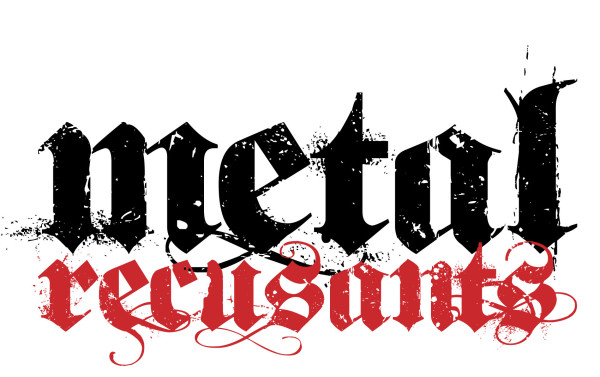
3 CommentsTags: metal blogs, metal journalism, metal media, metal recusants
